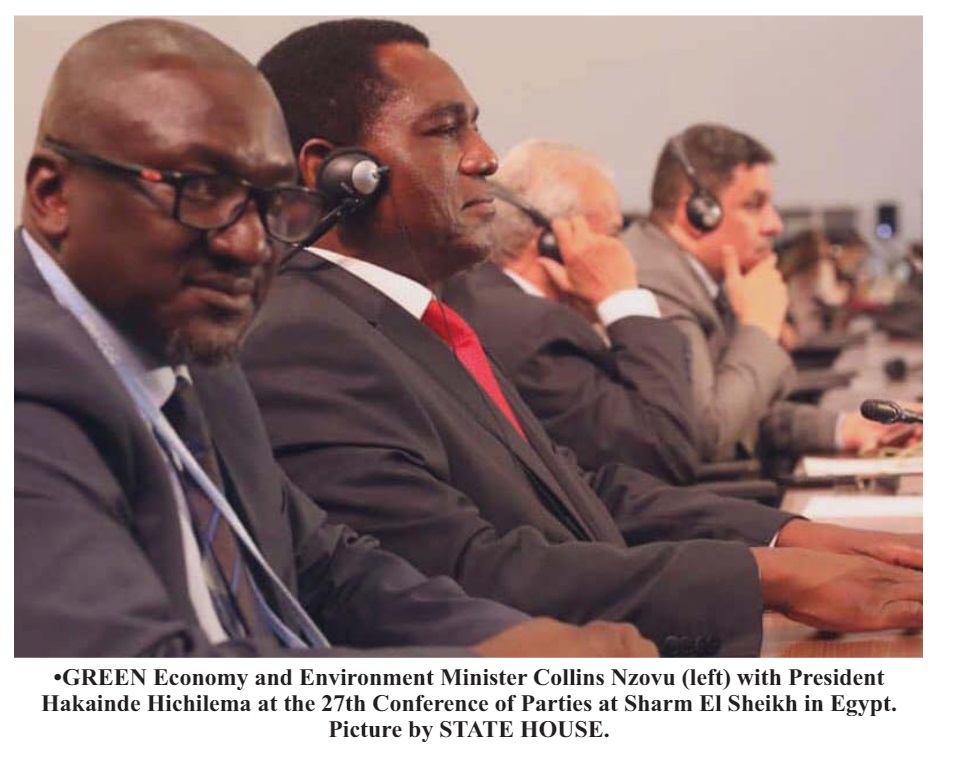By CINDY SIPULA
Agness Mwenda, a native of Bbendele village in Siavonga District has been farming for the past eight years. She grows a variety of crops among them maize and beans, however, the past three years have been nothing but stressful for the 46-year-old farmer.
Through her farming business,she managed to build a house and take her children to school,but her circumstances have changed.
She says the maize production yields have declined due to erratic rainfall as well as the harsh realities that have come with climate change. Ms. Mwenda narrates how she managed to run a backyard garden before she stopped due to the drying up of her water well. “Before I used to manage to grow vegetables and sell to motorists on the Chirundu-Siavonga road, but today the story is different, I also have to travel to Lisutu, a nearby village to get vegetables for home use,”She lamented.
Ms. Mwenda’s story is no different from Pius Sibanje, a livestock farmer in Siavonga District. He has expressed concern over the drying up of rivers and streams in the area. He says the geographical makeup of the district coupled with erratic rains has forced farmers to walk several miles in search of water and pasture.
Mr. Sibanje shares how some community members have had to share water sources with animals due to the unavailability of water to cater for both humans and animals. “Access to clean and safe drinking water has been a challenge for us, especially in October, you find that most wells dry up and we have to walk miles just to access this resource,” he said.
Mr. Sibanje has also attributed the dry spells to the rampant cutting down of trees in the area. He says despite the local authority putting up strict measures on deforestation, many people are still practicing the trend. Zambia,like many nations,has been hit hard by Climate change.
While many believe that phasing out coal and boosting low emission energy sources could be the answer to combating climate change, environmental experts believe water is the answer to combating climate change.
Alex Simalabwi, Head of the Global Water Partnership Africa Coordination Unit says Climate Change cannot be combated if water scarcity is not addressed.
Mr. Simalabwi who was speaking in an interview on the sidelines of the Conference of Parties (COP27) said there is an urgent need for Africa to mobilize resources for water investment. He said African countries need to take ownership and formulate reforms that push for proper water governance.
Mr.Simalabwi said African countries need to develop technologies that will ensure people have access to clean water.
“We cannot continue to lobby for finances from other countries to address our water problems, African leaders need to be up to scale in delivering commitments on water,” he said. “We see other sectors heavily invested in but the water sector continues to be ignored. Climate Finance needs to flow to support adaptation,” he noted.
The Head of the Global Water Partnership Africa Coordination Unit, Simablabwi has expressed satisfaction that discussions on water security and climate change have started.
“As the Global Water Partnership, we are happy that during the COP27, an inauguration summit for the international high-level panel on water investments for Africa was held.This indicates that the sector is beginning to get attention,” he said. And environmentalist Conwell Hakapya says the protection of water sources is cardinal in mitigating climate change impact.
Mr. Hakapya says Zambia has not invested enough in the water sector and has since urged the government to prioritize protecting water sources by increasing the budgetary allocation to environmental protection.
He believes the rampant cutting of trees especially around water sources continues to disturb the ecosystem and the only way of mitigating climate change is by ensuring that the water bodies are protected.
During COP 27, the Zambian government pledged its commitment to implementing water investment programs aimed at mitigating climate change.
President Hakainde Hichilema through a speech delivered on his behalf by Green Economy and Environment Minister Collins Nzovu at the High-Level Panel Inauguration summit in Sharm El Sheikh, Egypt said the 5.75 billion US Dollar Zambia Water Investment Program will strengthen governance on water security in the country.
Mr. Hichilema said through this program 40 dams are expected to be constructed and once operational, they will enhance national water security and spur economic development through improved agriculture productivity.
Water investment remains critical in mitigating climate change impact and in addressing challenges faced by individuals like Agness Mwenda.
Therefore, it is everyone’s wish to see an improvement in the governance and management of water in Zambia as well as fulfilling commitments made by Nations during the COP 27 on Climate Change.








